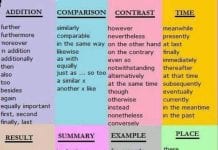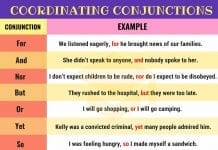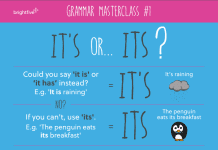Are the words Complete and Finished the same?
Finish and complete are close synonyms. That means that they have a very similar meaning and only a small difference. In many cases you can use either finish or complete.
However, when you want to be specific and precise it’s best to know how different finish and complete can be.
Finish
Let’s start with finish. We commonly use finish when we want to describe a task or action ending. Finish is connected to actions, tasks, chores, and other activities.
When you say that you have finished something, or want to finish something, you are drawing attention to that action or activity ending. Most of the time doesn’t matter how you finish, or the quality, it’s just important that it’s done.
Finish examples:
- That’s it, James. I can’t take this anymore. We’re finished. – in this sentence a relationship is being ended. When we say “we’re finished” we draw attention to the fact that the relationship will not continue.
- Are you finished yet? – this is a common question when we want to know if the person has ended an action. We don’t want to know anything except whether or not they are done.
What is the difference between Finish and Complete?
Now let’s move on to complete, which is used in different circumstances.
Complete
We commonly use complete when we want to describe the process as well as the end. To complete something means to put effort into it, to go over almost all details, and to make sure the end result is of a certain quality. When you complete something you want to draw attention to the fact that you gave it your best effort.
Complete examples:
- Our team went over all the paperwork and we can safely say that the application is now completed. – here we draw attention to the fact that the team took no chances and went over everything. The application is complete because all parts were considered.
- After revisiting the experiment and procedure we can assure you that the prototype is complete and ready for testing. – this example is scientific, and we know how much effort goes into a science experiment or patent. It is only complete when every possible angle has been taken into account.
Both finish and complete are linked to actions or activities, but they each describe a different way of ending them. Finish just describes that it is over, but complete describes that it was done thoroughly.
Finished and Complete Difference in Spanish
¿Cuál es la diferencia entre Terminar y Completar?
Solemos utilizar el término “terminar” cuando queremos describir el final de una tarea o acción. Terminar se relaciona con acciones, tareas, quehaceres y otras actividades. Cuando se dice que se ha terminado algo, o que se quiere terminar algo, se está llamando la atención sobre el final de esa acción o actividad. La mayoría de las veces no importa cómo se termine, o la calidad, sólo es importante que se haga.
Ejemplo: Ya está, James. No puedo aguantar más. Hemos terminado.
Solemos utilizar el término completo cuando queremos describir tanto el proceso como el final. Completar algo significa esforzarse, repasar casi todos los detalles y asegurarse de que el resultado final es de cierta calidad. Cuando se completa algo, se quiere llamar la atención sobre el hecho de que se ha hecho el mejor esfuerzo.
Ejemplo: Nuestro equipo revisó todo el papeleo y podemos decir con seguridad que la solicitud está terminada.
Finished and Complete Difference in French
Quelle est la différence entre “terminer” et “achever” ?
Nous utilisons couramment le terme “terminer” lorsque nous voulons décrire la fin d’une tâche ou d’une action. Finir est lié aux actions, tâches, corvées et autres activités. Lorsque vous dites que vous avez terminé quelque chose, ou que vous voulez terminer quelque chose, vous attirez l’attention sur la fin de cette action ou activité. La plupart du temps, la façon dont vous terminez, ou la qualité, n’a pas d’importance, il est juste important que ce soit fait.
Exemple : C’est fini, James. Je n’en peux plus. Nous avons terminé.
Nous utilisons couramment “terminer” lorsque nous voulons décrire le processus ainsi que la fin. Achever quelque chose signifie y consacrer des efforts, passer en revue presque tous les détails et s’assurer que le résultat final est d’une certaine qualité. Lorsque vous terminez quelque chose, vous voulez attirer l’attention sur le fait que vous y avez consacré tous vos efforts.
Exemple : Notre équipe a passé en revue tous les documents et nous pouvons affirmer que la demande est maintenant terminée.
Finished and Complete Difference in Italian
Qual è la differenza tra Finish e Complete?
Usiamo comunemente finish quando vogliamo descrivere la fine di un compito o di un’azione. Finire è collegato ad azioni, compiti, faccende e altre attività. Quando si dice che si è finito qualcosa, o che si vuole finire qualcosa, si sta attirando l’attenzione sulla fine di quell’azione o attività. La maggior parte delle volte non importa come si finisce, o la qualità, è solo importante che sia fatto.
Esempio: Questo è tutto, James. Non ce la faccio più. Abbiamo finito.
Usiamo comunemente completare quando vogliamo descrivere sia il processo che la fine. Completare qualcosa significa metterci impegno, rivedere quasi tutti i dettagli e assicurarsi che il risultato finale sia di una certa qualità. Quando si completa qualcosa si vuole attirare l’attenzione sul fatto che si è dato il massimo sforzo.
Esempio: Il nostro team ha esaminato tutti i documenti e possiamo tranquillamente dire che la domanda è stata completata.
Finished and Complete Difference in German
Was ist der Unterschied zwischen “Finish” und “Complete”?
Wir verwenden Finish üblicherweise, wenn wir das Ende einer Aufgabe oder Aktion beschreiben möchten. Finish wird mit Aktionen, Aufgaben, Hausarbeiten und anderen Aktivitäten verbunden. Wenn Sie sagen, dass Sie etwas beendet haben oder etwas beenden möchten, lenken Sie die Aufmerksamkeit auf das Ende dieser Aktion oder Aktivität. Meistens spielt es keine Rolle, wie Sie etwas beenden, oder die Qualität, es ist nur wichtig, dass es erledigt ist.
Beispiel: Das war’s, James. Ich kann das nicht mehr ertragen. Wir sind fertig.
Wir verwenden gewöhnlich complete, wenn wir sowohl den Prozess als auch das Ende beschreiben wollen. Etwas zu vollenden bedeutet, sich Mühe zu geben, fast alle Details durchzugehen und sicherzustellen, dass das Endergebnis von einer bestimmten Qualität ist. Wenn Sie etwas vervollständigen, möchten Sie die Aufmerksamkeit darauf lenken, dass Sie sich die größte Mühe gegeben haben.
Beispiel: Unser Team ist den gesamten Papierkram durchgegangen und wir können mit Sicherheit sagen, dass der Antrag jetzt abgeschlossen ist.
Finished and Complete Difference in Portuguese
Qual é a diferença entre Terminar e Completo?
Usamos normalmente o acabamento quando queremos descrever uma tarefa ou acção terminada. O acabamento está ligado a acções, tarefas, tarefas, tarefas e outras actividades. Quando dizemos que terminamos algo, ou queremos terminar algo, estamos a chamar a atenção para essa acção ou fim de actividade. Na maioria das vezes não importa como se termina, ou a qualidade, é apenas importante que se termine.
Exemplo: É isso mesmo, James. Não aguento mais isto. Estamos acabados.
Usamos normalmente completo quando queremos descrever o processo, bem como o fim. Concluir algo significa fazer um esforço, rever quase todos os detalhes, e assegurar que o resultado final é de uma certa qualidade. Quando se completa algo, quer-se chamar a atenção para o facto de se ter dado o melhor de si.
Exemplo: A nossa equipa analisou toda a papelada e podemos afirmar com segurança que a candidatura está agora concluída.
Finished and Complete Difference in Hungarian
Mi a különbség a Finish és a Complete között?
Általában a befejezés szót használjuk, amikor egy feladat vagy cselekvés befejezését akarjuk leírni. A befejezni cselekvésekhez, feladatokhoz, házimunkákhoz és egyéb tevékenységekhez kapcsolódik. Amikor azt mondjuk, hogy befejeztünk valamit, vagy be akarunk fejezni valamit, akkor arra hívjuk fel a figyelmet, hogy az adott cselekvés vagy tevékenység véget ér. Legtöbbször nem számít, hogyan fejezed be, vagy milyen minőségben, csak az a fontos, hogy befejezted.
Példa: Ez az, James. Nem bírom ezt tovább. Végeztünk.
Általában akkor használjuk a befejezni szót, amikor a folyamatot és a véget is le akarjuk írni. Valamit befejezni azt jelenti, hogy erőfeszítést teszünk bele, szinte minden részletet átnézünk, és megbizonyosodunk arról, hogy a végeredmény egy bizonyos minőséget képvisel. Amikor befejezel valamit, akkor arra akarod felhívni a figyelmet, hogy a legjobb erőfeszítéseddel megtetted.
Példa: Csapatunk átnézte az összes papírmunkát, és nyugodtan kijelenthetjük, hogy a pályázatot most már befejeztük.
Finished and Complete Difference in Russian
В чем разница между Finish и Complete?
Мы обычно используем слово “закончить”, когда хотим описать завершение задачи или действия. Завершение связано с действиями, задачами, работой и другими видами деятельности. Когда вы говорите, что закончили что-то или хотите закончить что-то, вы привлекаете внимание к тому, что действие или деятельность завершается. Чаще всего не имеет значения, как вы закончите, или качество, важно только, что это сделано.
Пример: Все, Джеймс. Я больше не могу этого выносить. Мы закончили.
Мы обычно используем “завершить”, когда хотим описать как процесс, так и конец. Завершить что-то означает приложить усилия, проработать почти все детали и убедиться, что конечный результат имеет определенное качество. Когда вы завершаете что-то, вы хотите привлечь внимание к тому, что вы приложили к этому все усилия.
Пример: Наша команда просмотрела все документы, и мы можем с уверенностью сказать, что рассмотрение заявки завершено.
Learn English for free
- Is class Finished or Ended?
- What is the difference between Finish and Complete?
- Difference between OVER and FINISHED
- 80 In Conclusion Examples! + Translation
- We have completed work AT 9:12 pm or BY 9:12 pm?
- What is the complete subject and complete predicate in this sentence?
- How to write a complete sentence?
- Complete the sentences BY using … OR Complete the sentences using…?
- Postpone TO, FOR, UNTIL, AFTER, BY 🤓✅
Browse by Category
A Adjectives B Business English C D dictionary E English grammar English Idioms English language English Learning Tips English phrases English teacher English Vocabulary English Vocabulary English words F G H how to learn english I idioms Infographic J L Learn English M N noun O P phrasal verb R S Skype T teach English Teaching English as a foreign language Text Abbreviations The Jungle Book tips U W Y
- Abbreviations
- acronyms
- Advanced English Lesson
- Adverbs
- Apps
- Arabic
- Articles
- Beginner English
- Books
- Business English
- Clauses
- Collocations
- Conjunctions
- Difference Between
- English Grammar
- English Idioms
- English Learning Tips
- English Questions and Answers
- English Speaking
- English Test
- English Videos
- English Vocabulary
- English Vocabulary Dictionary
- English Writing
- For Kids
- For Teachers
- French
- Games
- German
- Hindi
- Hungarian
- IELTS
- Infographics
- Intermediate English
- Italian
- Japanese
- Learn English
- Listening Skills
- Lyrics
- Names
- Phrasal Verbs
- Portuguese
- Prefix
- Prepositions
- Proverbs
- Q&A
- Quiz
- Quotes
- Russian
- Should
- Spanish
- Suffix
- Synonyms
- Teach English
- Technology
- Uncategorized
- Understanding
- Useful English learning websites
- Vietnamese
Latest Comments

Hello. Thank you very much for the most detailed and clear explanation! Could you please comment on this sentence where…

“Hey there! Just wanted to send you a bunch of good luck vibes as you go for captain of the…

i need a good luck message for a teen trying out for captain of the drill team with the word…

Very useful for learning english language. Thank you!

thanks for post

























